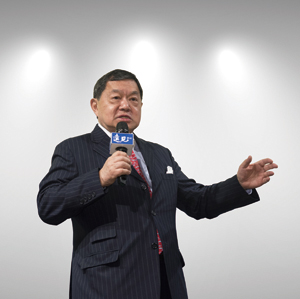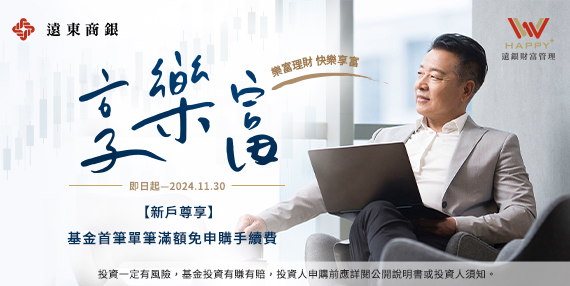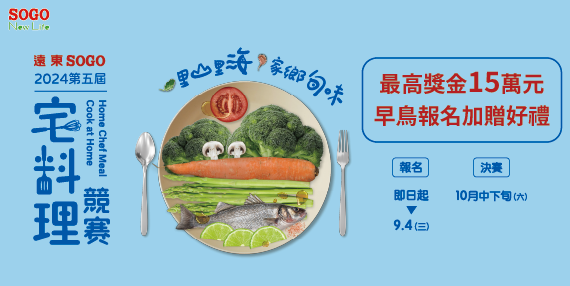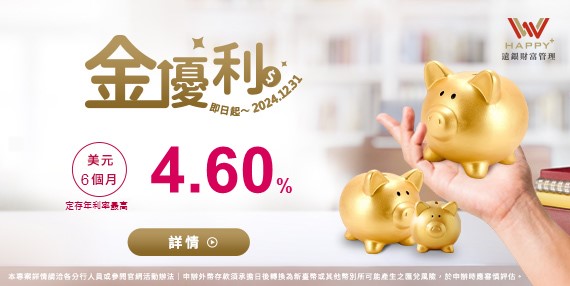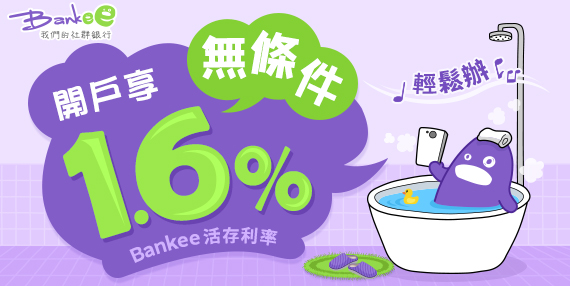2019年06月號 領航者的話
Adaptability, Agility and Transformation Capabilities: Embrace FEG’s New Era
Chairman of Far Eastern Group / Douglas Tong Hsu
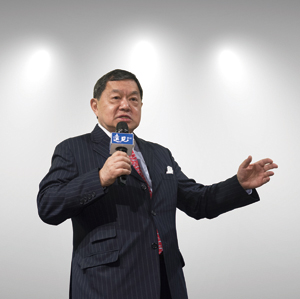
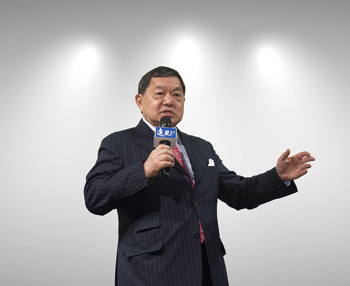
As Far Eastern Group (FEG) prepares to usher in its 70th anniversary during a dazzling age of digital innovation, artificial intelligence, green technology and rapid business metamorphosis, FEG will continue its transformation during this dynamic era, embracing the new economy as a forward-looking, agile and creative enterprise, whilst still adhering to its overarching principles of sincerity, diligence, thrift, prudence and innovation. As an auspicious prelude to its 70th anniversary, FEG steadfastly rose above political and economic turmoil around the world in 2018, and will continue to stride ahead with no slacking in its ambition towards a vision ultimately realized by its centennial celebrations, achieving multiple milestones in sustainable development and innovative business practice along the way.
In 2018, the global economy was dominated by the United States, the European Union, China and Japan with the US standing out among these four with relatively strong growth. The EU experienced only lukewarm recovery, the Chinese economy cooled despite attempts to stabilize it and Japan witnessed a mild economic upturn. Motivated by the unilateralism of President Trump’s America First stance, the US successively withdrew from several international organizations and agreements, including the Trans-Pacific Partnership, the Paris Climate Accord, the Iran Nuclear Deal, and the UN Human Rights Council, and renegotiated the North American Free Trade Agreement. The US also adopted strategies to thwart China’s manufacturing ambitions—“Made in China 2025,” imposing a ban on sales of high-tech products to China. The US-Sino trade disputes on various fronts, such as intellectual property protection, tariffs and exchange rates, have had an enormous impact on the world’s economic growth. Europe meanwhile is faced with its own political and economic challenges with its prospects expected to be fraught with uncertainties as the post-Merkel era begins in Germany. In France, President Emmanuel Macron has been losing his public appeal, and the yellow-vest demonstrations, the largest in scale of the past fifty years, have swept through the country. The British economy, and its politics remain embroiled in continued Brexit uncertainty as the government endeavors to follow through on 2016’s referendum result.
While China continues to accelerate technological development at home, expand its global reach by promoting the Asian Infrastructure Investment Bank as well as the Belt and Road Initiative and dominate negotiations on the Regional Comprehensive Economic Partnership trade deal, it also has both external and internal challenges to grapple with, ranging from ever-increasing debts to the impending contraction of investment and consumption. In order to stabilize its economic and financial situation, it has made the centerpiece of its economic policy “six stabilities”— in the areas of employment, finance, foreign trade, foreign investment, domestic investment, and development targets, and pledged a strategy to expand imports but, notwithstanding these efforts, a full-blown trade war and economic downturn loom large on the horizon.
2019 is set to unfold with a myriad of challenges. Rising populist protectionism runs counter to globalization and geopolitical power struggles persist. America’s dividing partisanship and fiscal deficit and Federal Reserve policy decisions are giving rise to market concerns and developments in trade tensions between the United States and China will continue to impact the rest of the world. Implications of the summit between the American and North Korean leaders remain tantalizingly unclear. The UK’s Brexit talks with the EU are mired in frustration and unpredictability. International oil prices are bound to fluctuate due to a multitude of factors including the deal reached among OPEC member states and their partners to reduce oil production, increased risks of geopolitical conflicts, growth in the electric vehicle sector and advances in green energy. All of these developments and trends contributing to the uncertainty of the global economy are compounded by continuing concerns about the ability of governments around the world to cope with the burgeoning incidence of extreme weather conditions triggered by global warming.
Taiwan has also been braving adversity, ranging from shifts in diplomatic recognition, marginalization in international trade, to cross-strait tensions. As it strives to transform and upgrade its economy, it is faced with a multiplicity of challenges, including scarcity of natural resources, antagonism between political parties, social discord, exclusion from regional economic integration, reductions in energy reliability and increases in production costs, which are negatively impacting the private sector’s decisions to invest and threatening to blunt its competitive edge.
Changes and challenges abound in global politics and the economy as well as in the natural world. Business models evolve rapidly while supply chains are migrating against the backdrop of trade conflicts. Digital technologies are driving the world economy forward. FEG, capitalizing on its 70 years of experience and expertise, is highly responsive and adaptive to these environmental changes. Outstanding performances were seen across business segments in 2018. For example, Far Eastern New Century Co. (FENC) executes strategic investments in a timely manner to fulfill its global vision and business operations located in Taiwan, China, Vietnam, the United States, Japan and Southeast Asia have been vertically integrated into a streamlined system from production to sale. The synergy created by this global deployment has enabled FENC to maintain its leadership position in the industry. FENC is not only a global leader in the polyester industry; but also a recycled polyester leader in the global market. Its green products are certified by rigorous tests and audits both at home and abroad and thereby well-acknowledged by its customer base around the world. In addition, several other R&D projects have spearheaded the industry’s exploration into new domains. FENC also demonstrates its commitment to promoting corporate social responsibility and sustainability. Its efforts and achievements not only have been well-acknowledged by Global Corporate Sustainability Awards (GCSA) and recognized by Taiwan’s CommonWealth Magazine and Global Views Monthly for the CSR Award, but also nominated as one of the World’s Best Employers by Forbes, thereby setting a role model for corporate in Taiwan. Moving forward, FENC is dedicated to initiate smart management to sustain competitive edge, to build global presence to optimize sales performance and service quality, to leverage artificial intelligence to capture business opportunities derived from successful transformation, to focus on green products to uphold brand values and to reinforce R&D capabilities to harness advanced technologies. Far EasTone Telecommunications Co. (FET) is ready to reposition itself from telecom operator to digital service provider in the era of 5G, and will increase the proportion of value-added services to compete on value rather than price. It will also aim for growth in cloud, security and energy management, and materialize business opportunities by focusing on the applications of the IoT and smart city. Asia Cement Co. (ACC) has had significant growth in earnings results mainly from its remarkable performance in China. It has managed to strengthen its foothold in the industry by both growing organically and expanding via acquisition, thereby extending its reach from central China to north China and making it to the Top 5 in China. In the retail segment, Far Eastern Retail Group is actively pursuing transformation, introducing shopping centers of new concepts to consumers. Its three shopping malls of the City series boosted the Group’s market share in the sector of department stores. It has also managed to capitalize on the trend of “Online to Offline” as e-commerce continues to develop towards full bloom. Two more shopping malls, respectively located in Taipei’s Xinyi A13 and Chubei, are expected to further broaden its retail landscape when they open. Oriental Chemical Co. (OUCC) experienced a growth in revenue in 2018 mainly as a combined effect of an increase in both the sales volume of its staple product—MEG and its selling price. Far Eastern International Bank (FEIB), with its digital capabilities kept up to date for financial services, also performed relatively well in revenue and earnings.
Diversified investments expand FEG scope to realize consistent income. FEG engages in a variety of endeavors, including philanthropy, education, healthcare and environmental sustainability. Through various events, we promote a positive mentality and foster hope in society. In 2018, for example, Far Eastern Memorial Foundation co-published with universities two white paper books on long-term care policy, entitled respectively Rights of Migrant Caregivers in Taiwan and Prospects of Smart Technology Application to Senior Caregiving, which received favorable reviews in a variety of circles upon publication and were applauded for their insightful contribution to policy suggestion. The foundations also hold the Far Eastern Architecture Award and Top Talent for New Life Cooking Competition to promote the humanities. In addition, the Far Eastern Y. Z. Hsu Science and Technology Memorial Foundation hosts the Y. Z. Hsu Science Award, and presents in three categories, namely Y. Z. Hsu Science Chair Professor, Y. Z. Hsu Science Paper Award, and Y. Z. Hsu Technology Invention Award, to promote science and technology innovation and simultaneously enhancing Taiwan’s future competitiveness. Since the inception of the Y. Z. Hsu Science Award, nearly 300 Taiwanese scholars have been recognized with total prizes of around NT$140 million. At the forefront of healthcare, the Far Eastern Memorial Hospital has completed its expansion, and can therefore allow medical professionals to delve into even more advanced and sophisticated clinical research that will benefit even more patients. In the field of education, Yuan Ze University has spared no efforts in upgrading itself with digital innovation and expects to join the ranks of world-class universities. FEG remains dedicated to advancing public wellbeing and is preparing itself to contribute even more to the country in the future.
Over the 70 years since its establishment, FEG has witnessed numerous changes in the socio-economic climate. We are ready to thrive in an era of fast-evolving business models by harnessing technological innovations, including IoT, mobile technology, AI, block chain, cloud computing and big data. As touched on in the theme of the 2018 Far Eastern Group Annual Strategy Meeting—Transformation in a Dynamic Era to Embrace the New Economy, we will undertake this transformation with new thinking, pursue growth with innovation and perseverance, inject renewed life into all our business operations across various sectors from Taiwan to Asia, and globally, and stride on towards centennial prosperity. (Abstract from Business Report of FENC 2019 Annual General Shareholders’ Meeting)#



